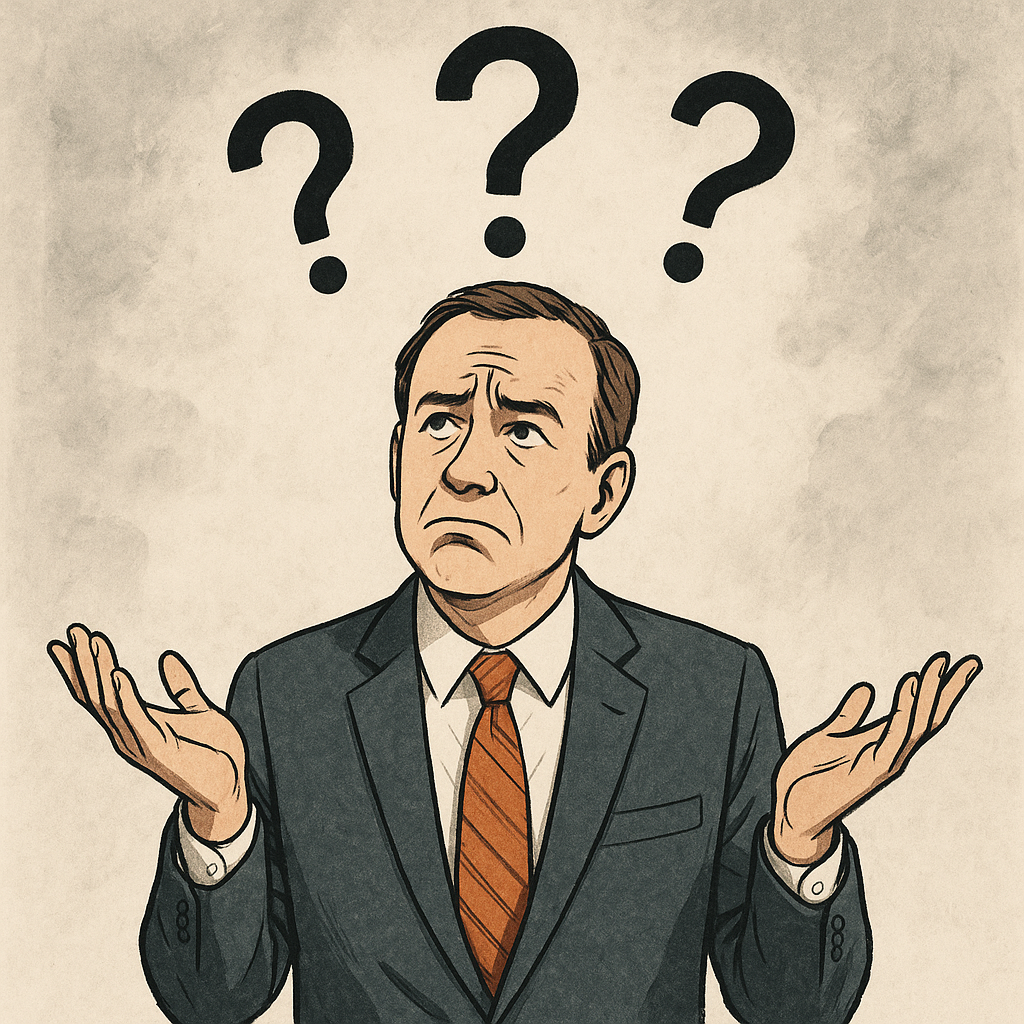I've got no problem residing in the fact that I simply don't know with anywhere near 100% certainty what the best course of action is in many spheres of life....
I'm talking here about the bigger issues and longer term plays... such as how to tackle immigration levels, war, or what stocks or crypto to invest in, even what my next career move should be...
(I'm not talking about smaller sphere life issues, such as what workout regime to adopt or what recipes to use to get a result, with those I can test a few times and I kNOW with a reasonable level of certainty what works, granted I may need to adapt periodically, but generally the smaller the issue the more certainty I have.
But in terms of bigger picture stuff I'm quite happy to say 'based on this data set we should do this, however there's a high level of uncertainty about the outcome' - and the longer the time period, the greater the uncertainty.

Too many overconfident people...?
The problem I think we've got in both the private and public sectors is that there are too many people in too higher up positions who think they know more than they do, and feel confident that they know best, and often they team up, it's much easier to be overconfident in a group, after all (even if sometimes we have an emporers new clothes scenario).m
And when we think we know, we often refuse to query. Confidence has a tendency to limit our realization of gaps in our knowledge — gaps that we might have plugged if we spoke the words "I don't know."
Worryingly, there is some evidence that the overconfident are the most likely to overestimate their abilities....
An example is the Dunning-Kruger effect, which shows that less skilled individuals in a domain overestimate their performance due in part to the fact that they do not have a frame of reference for what good performance is.
Similarly, the paper "Some scientific knowledge is a dangerous thing" (Lackner et al., 2019) shows how overconfidence increases faster than actual knowledge among a large population survey. The result is that those with an intermediate level of knowledge have the largest discrepancies — they overestimate what they can do and regard themselves as experts when they are a long way from being so.
And in group settings, over-certainty will suppress dissension or disheartening of different opinions, leading to worse results. Social comparison bias and false consensus can reinforce this: people expect others to have the same confidence and beliefs, which may solidify false norms.
It'll all be alright in the end...?
Maybe in a democracy.... we can just elect new leaders for them to get it wrong and then re-elect more leaders and so on.... all the while the country just goes steadily downhill, FINE!
The problem is in dictatorships where incumbent leaders can suppress counter-knowledge and are more able to deflect downtrends onto other sources.
I don't know, it would be nice to think we could all just admit to being a little less certain most of the time!
Maybe, but what do I know>!>?